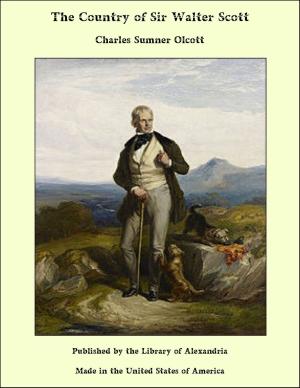The Printer Boy; or How Benjamin Franklin Made His Mark: An Example for Youth
Nonfiction, Religion & Spirituality, New Age, History, Fiction & Literature| Author: | William M. Thayer | ISBN: | 9781465538758 |
| Publisher: | Library of Alexandria | Publication: | March 8, 2015 |
| Imprint: | Language: | English |
| Author: | William M. Thayer |
| ISBN: | 9781465538758 |
| Publisher: | Library of Alexandria |
| Publication: | March 8, 2015 |
| Imprint: | |
| Language: | English |
This book is designed to illustrate the familiar maxim, that "the boy is father to the man." The early life of Franklin is sketched from his childhood to the time he was established in business, thus showing what he was in boyhood and youth; and the achievements of his manhood are summed up in a closing chapter, to substantiate the truth of the above proverb. The author believes that the lives of distinguished men may be incorporated into a story, uniting narrative and dialogue so as to be more attractive to the young. John Bunyan was the first to adopt this style, and his inimitable Pilgrim's Progress charms the young reader, not only by its graphic imagery, but also by its alternation of narrative and dialogue. Since his day, Others have adopted a similar style, particularly in works of fiction, with success. Why may not truth appear in such a dress as successfully as fiction? Why may not actual lives be presented in this manner as vividly as imaginary ones? The young mind will seize upon a truth or fact that is conveyed in a story, when it will remain wholly indifferent to it as it appears in a simple statement. So the life of an eminent man may engage the attention of this class, if he is made to speak and act for himself, when they would not be interested in it, if it were presented to them in a plain summary of facts. In this volume, the actual, early life of Franklin is wrought into a story. The imagination has done no more than weave the facts of his boyhood and youth into a "tale of real life." It makes Benjamin and his associates speak and do what biographers say they spoke and did. It simply paints the scenes and acts of which Other writers have told. A conspicuous place is given in the work to the maxims of Franklin, for the purpose of conveying important lessons in regard to the formation of character, and thus stimulating the young in the path of well-doing. Whole volumes of meaning are condensed into many of his wise and pithy sayings
This book is designed to illustrate the familiar maxim, that "the boy is father to the man." The early life of Franklin is sketched from his childhood to the time he was established in business, thus showing what he was in boyhood and youth; and the achievements of his manhood are summed up in a closing chapter, to substantiate the truth of the above proverb. The author believes that the lives of distinguished men may be incorporated into a story, uniting narrative and dialogue so as to be more attractive to the young. John Bunyan was the first to adopt this style, and his inimitable Pilgrim's Progress charms the young reader, not only by its graphic imagery, but also by its alternation of narrative and dialogue. Since his day, Others have adopted a similar style, particularly in works of fiction, with success. Why may not truth appear in such a dress as successfully as fiction? Why may not actual lives be presented in this manner as vividly as imaginary ones? The young mind will seize upon a truth or fact that is conveyed in a story, when it will remain wholly indifferent to it as it appears in a simple statement. So the life of an eminent man may engage the attention of this class, if he is made to speak and act for himself, when they would not be interested in it, if it were presented to them in a plain summary of facts. In this volume, the actual, early life of Franklin is wrought into a story. The imagination has done no more than weave the facts of his boyhood and youth into a "tale of real life." It makes Benjamin and his associates speak and do what biographers say they spoke and did. It simply paints the scenes and acts of which Other writers have told. A conspicuous place is given in the work to the maxims of Franklin, for the purpose of conveying important lessons in regard to the formation of character, and thus stimulating the young in the path of well-doing. Whole volumes of meaning are condensed into many of his wise and pithy sayings















